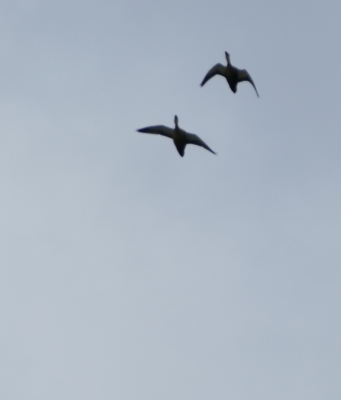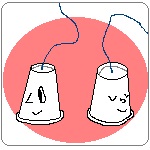風鈴さんの おぼえた日記 - 2016年11月5日(土)

この日記をフォローしているユーザ
この日おぼえたフレーズ(英語・中国語・ハングル)
おぼえた日記

Time to end discrimination against Okinawa Saturday, November 5
There was an incident recently that truly pained me. Osaka Prefectural Police riot squad officers hurled derogatory remarks at local protesters demonstrating against the construction of a U.S. military helipad in the Takae area of Higashi, Okinawa Prefecture. One officer called a protester -- a novelist living in Okinawa -- an "aborigine."
●riot squad 機動隊 ●hurl 強く投げつける ●derogatory 人格を傷つけるような
●remark 言う ●aborigine 土人、土着民、原住民
心が痛くなるできごとが起きた。沖縄県東村高江で、米軍のヘリコプター離着陸帯(ヘリパッド)建設工事に反対して抗議活動をしていた住民に対して、大阪府警から派遣されていた機動隊員が「土人」という言葉を投げつけたのだ。直接、その言葉を浴びたのは、沖縄で生きてきた小説家の男性だった。
The term was obviously intended to heap scorn on the roots of the person on the receiving end. It was something that no one should ever say anywhere. The fact that it was hurled at an Okinawan makes it all the more problematic.
●obviously 明らかに ●heap scorn 軽蔑する、さげすむ ●problematic 問題になる
もちろん、その人のルーツによって相手をさげすもうとする「土人」という言葉じたい、どんな場でも使ってはいけないものだ。しかし、それが沖縄の人に向けて発せられたことが、問題をいっそう重くしている。
Until the beginning of Japan's Meiji period, Okinawa was an independent monarchy called the Ryukyu Kingdom. Then the Meiji government imposed its rule on the islands, renamed them "Okinawa Prefecture," and erased the kingdom from the map. In subsequent years, the government banned the Ryukyu language, and forced the islanders to adopt Japanese cultural practices and daily customs. At the time, it's said that mainland Japanese had a discriminatory attitude toward Okinawans, looking down on them as people that needed to be "incorporated into Japan."
●monarchy 王制
沖縄は明治のはじめまで「琉球王国」という王制の国だったが、明治政府によって「沖縄県」が設置されて、王国は滅亡した。それ以降、沖縄の元々の言葉は使用を禁じられ、文化や生活習慣も日本式にあわせるように強制されていった。そして、その時にあったのが沖縄を下に見て「日本に組み入れてやろう」とする、いわゆる“上から目線”の差別意識だったといわれる。
There have been many Okinawans who believed that this discrimination continued through World War II, through the U.S. occupation of the islands, and even after the prefecture's return to Japanese sovereignty in 1972. Of course, the majority of Japanese mainlanders would say, "Of course I'm not prejudiced against Okinawans. I mean, I love Okinawa." But then the claim that forcing the burden of hosting some 70 percent of U.S. bases in Japan onto Okinawa is a form of discrimination has deep roots.
●occupation 占領
差別の意識は、戦争中、また戦後のアメリカ占領下時代、さらに日本に復帰してからもずっと続いているのではないか、と考えていた沖縄の人たちは少なくなかった。もちろん、本土と呼ばれる沖縄以外の人たちの多くは「差別なんかしてない。沖縄のことがとても好き」と思っていたが、それでも「米軍基地の7割以上が沖縄に押しつけられているのも差別のあらわれではないか」といった声が根強くあったのだ。
The bare-faced prejudice behind the "aborigine" remark went to the heart of Okinawans' long-held anxieties. When I spoke to a woman in the prefecture by telephone about the incident, she told me tearfully, "Just as I thought, that's how they see us."
●bare-faced 公然とした ●prejudice 偏見
今回の「土人」というはっきりした差別表現で、沖縄の人たちがずっと抱いていた不安や心配が的中した形になった。沖縄にいる女性と電話で話したら、「やっぱりそんなふうに思われていたのか」と涙声になった。
There is nothing more hurtful to the human heart than discrimination. For example, if you're scolded for making a mistake at work, you can be more careful and improve the situation. But if you're attacked simply because of where you're from, you can't change that. It's not something you can "improve" or "fix." It's just you, and the sheer unfairness of it is deeply painful. I have had patients who have carried such wounds around inside them for years, unable to recover from the shock.
差別ほど人の心を傷つけることはない。たとえば、仕事のミスで叱られたら「気をつけます」と改めることができるが、出身地で差別された場合、たとえそれを変えたくてもそうはできないからだ。診察室でこういった差別で深く傷つき、何年もショックから立ち直れない人に会ったこともある。
The Osaka policeman who uttered the "aborigine" comment has apparently said that he "didn't know it was discriminatory." It seems likely he didn't know anything of Okinawa's history, either. Even so, he still hurt the people of Okinawa. We should all take the time to study Okinawa's history one more time, swear to do away with discrimination in its deepest sense, and help Okinawans heal. (By Rika Kayama, psychiatrist)
暴言を吐いた機動隊員は、「『土人』が差別的な言葉とは知らなかった」と言っているらしい。おそらく沖縄の歴史も知らなかったのだろう。そうだとしても、それは沖縄の人たちの心に大きな傷を与えてしまった。私たちみなで沖縄の歴史を学びなおし、本当の意味で差別をなくすと誓うことで、少しでも彼らの傷が癒えるとよいのだが。(香山リカ 精神科医)
〇彼はいつも差別の壁を突破しようと苦闘した。
He always struggled to break through walls of discrimination.
![]() /english/phrase/13127
/english/phrase/13127
沖縄県北部の小さな村・高江で強行に進められる米軍のオスプレイ離着陸用のヘリパッド建設。現地では反対派住民らがテントを張って抵抗し、機動隊とのにらみ合いが続いている。安倍昭恵首相夫人が視察に訪れて「何し来たのだ」と言われた。ヤンバルクイナの生息地で住民はわずか140名ほどでほぼ全員が反対している。反対運動をしているの人のなかには韓国籍の方もいて機動隊に暴力をふるい捕まっている。反対運動をしている人も機動隊員も他府県の人が多い。そんな中で機動隊員は「土人」「支那人」ということば発した。
米軍は海兵隊などの基地をグラムに移転する。沖縄の北部の基地10か所その中の2か所はヘリパッドを作る条件を付けたのにもかかわらず知事は返還の歓迎を表明した。これには政府も少しびっくりした。政府は基地反対運動にくさびを打ったと喜んでいた矢先の事件である。知事は2か所ヘリポートの建設を認めるように見える。これは普天間基地の移転先を辺野古から北部に移転させる秘策かも知れない。
一方政府は種子島の横の黒毛島にオスプレイの訓練用に滑走路を作る。表向きは米軍岩国基地のオスプレイの練習用だが、ここなら沖縄も近い。
川鵜
昨年ぐらいから川や湖沼でサギと川鵜が共存している姿をよく見ます。滋賀だけでなく三重、名古屋でも見ます。元々は岐阜の方から大量にやってきたようです。
飛んでいる姿は迫力があります。















沖縄は日本である。当たり前のことですが、そう思っていない人もいる。沖縄の人は昔から日本語を話します。琉球語などはありません。もちろん中国語を話したこともありません。これは差別というより、本土の人間の無知です。沖縄戦では県民80万人の内20万人死んでいます。戦後もアメリカに占領されていました。米軍基地の島です。これは日本を守るために沖縄に米軍がいて、沖縄を占領していたわけではありません。沖縄の犠牲の上に本土の平和と繁栄があったことを本土の人間がまず自覚することがとても大事です。そして沖縄の歴史をもっと勉強するべきだと思います。
逸れ鵜の羽打ち激しき奥琵琶湖 下山芳子
奥琵琶湖は恐ろしいことになっています。偽卵を抱かしたりしても効果はなく、竹生島は糞で白亜の島になりました。奥琵琶湖から逸れ鵜が大津に飛んできていると思われます。漁にびわ湖に来ますが夜は近くの小さな河川にねぐらがあるみたいです。5メートルぐらいの小さな川から大きな鵜が飛び立つを見たことがあります。